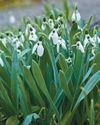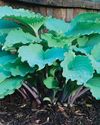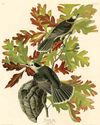
Gazing outside your home, have you ever thought, My garden could be so much more? Whether you're facing overgrown plants, unsightly problem areas or a lack of entertainment space to enjoy, that thought means it's time to renovate.
But then you think, I don't know where or how to begin!
Before completely gutting your yard out of frustration, consider what a professional landscape designer would do. A professional's first step is to assess and evaluate the conditions, performing what is called a site analysis. It should be your first step, too.
Experienced gardeners know how the amount of sun or shade a plant receives, soil type and pH and soil compaction influence the successful growth of plants. A site analysis with ecology in mind will address those factors and guide you in understanding other environmental conditions of your garden, no matter the size. This will allow you to create an earth-friendly landscape that benefits you and the greater ecology.
Because, my dear fellow gardeners, what happens in our gardens doesn't just stay in our gardens. Gardening practices, along with plant selection and placement, can negatively or positively impact the garden, the neighborhood and all the living organisms that inhabit these spaces-including you.
FIRST STEP: THE BASE MAP
A garden renovation starts on paper. A simple base map can be hand drawn. It will be the basis on which you make your analysis notes, followed by your landscape plan. The finished landscape or planting plan will illustrate your proposed new plantings and features.
Base maps of landscapes are drawn as if viewed from above-the bird's-eye view and they're called plans. They are drawn to scale, reflecting the accurate dimensions and location of the home, garage and other structures. (If creating a base map isn't your idea of fun, hire someone for this part. Save your creative energies for the analysis and landscape plan.)
Diese Geschichte stammt aus der May - June 2024-Ausgabe von Horticulture.
Starten Sie Ihre 7-tägige kostenlose Testversion von Magzter GOLD, um auf Tausende kuratierte Premium-Storys sowie über 8.000 Zeitschriften und Zeitungen zuzugreifen.
Bereits Abonnent ? Anmelden
Diese Geschichte stammt aus der May - June 2024-Ausgabe von Horticulture.
Starten Sie Ihre 7-tägige kostenlose Testversion von Magzter GOLD, um auf Tausende kuratierte Premium-Storys sowie über 8.000 Zeitschriften und Zeitungen zuzugreifen.
Bereits Abonnent? Anmelden

Pot It Up
Shake up the containergarden with theseNorth America –native perennials

THE GARDEN PATH TO PERDITION
I WAS CRUISING RIGHT ALONG, feeling okay about myself, when I came across a list of the Seven Deadly Sins.

A Productive PATIO
Tiny fruit, vegetable and herb plants help gardeners maximize any sort of growing space

TROPICAL FUSION
A FUSS-FREE APPROACH TO USING BOLD TROPICAL PLANTS IN ANY TEMPERATE GARDEN

WINTER READING
Pass the time with any of these inspiring books

SENSING A PATTERN
Greg Coppa reflects on an odd weather year and what continued warming may mean for his Rhode Island garden

TOP-PRIZE PERENNIALS
A foliage masterpiece for shade and a late bloomer for sun

MARK WESSEL
What's new for fruit and vegetable gardeners?

KINGS OF THE NORTHERN FORESTS
A look at the trees, shrubs and perennial plants that bolster life in Ecoregion 5

PROJECT FEEDERWATCH
Gardeners can help scientists know just where the birds are in winter